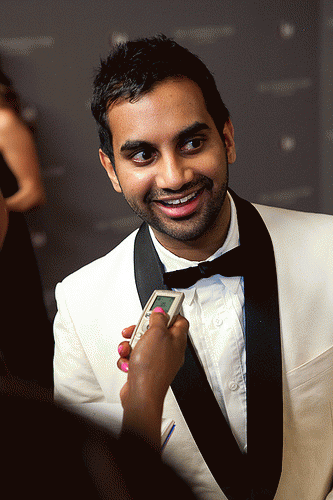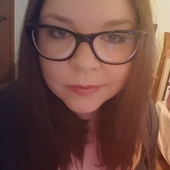
Actor Aziz Ansari at The Cosmopolitan Grand Opening and New Year's Eve Celebration
(Image by The Cosmopolitan of Las Vegas) Details DMCA
"Grace" met Aziz Ansari at a 2017 Emmy after-party. A photographer by trade, she connected with the actor/comedian/writer/director over their shared interest in vintage cameras. And who can deny the passion for photography ? They flirted over text, and about a week later, they went out. What happened after was sexual assault, according to Grace and the writers of the website babe- and they've convicted him with the flair of tabloid reporting and the force of a movement that does not allow for defense or appeals.
The details are plentiful, and in some cases outright gross. She catalogues his many errors across the night, from ordering white wine when she preferred red to a not-so-sexy move she calls "The Claw." The details are off-putting, and while it was clearly a bad date and perhaps even a tone-deaf sexual encounter, the question is this: is it sexual assault?
The deluge of assault accusations is the kind of flood that makes nervous men think about building arks. It's taken out many powerful men and many beloved men. When Harvey Weinstein went down, we collectively breathed a sigh of relief. We delighted in the character assassination of pick-up artist/alleged rapist Brett Ratner. We all drummed our fingers together with glee watching Bryan Singer's ongoing meltdown and assumed it meant he knew his days were numbered. But the downside of this long-overdue reckoning is the public kneecapping of beloved men who, unless you were in the Hollywood know, covered their tracks well. We carefully cut these men out of our hearts and felt betrayed by their loss. Louis CK and his genuine nice-guy facade, hurt. Kevin Spacey and his ability to entertain, hurt. Al Franken and his political promise, hurt.
Now Aziz Ansari.
The importance of the #metoo movement cannot be overstated. It is a shared cathartic vomiting up of the buried, pent-up angers and wrongs and hurts women have been forced to push down for far too long. It is a new sisterhood, armed with great power to make a permanent change, bringing women to a place where their only two options aren't "self-destruct" or "shove it down and pray it doesn't metastasize." It is a check and balance where previously there has only been money and power. But the unfortunate truth of power is that there will always be someone who wields it like a weapon. Women are no less vulnerable to the trappings of power than men. It is wildly important to listen to and believe women. At the same time, it is important to make sure this moment in time stays powerful and true for the good of women everywhere.
Weinstein's reckoning came at the hands of prestigious journalistic institutions, with long, storied histories of fact checking until it hurts. When The New York Timescalls out someone that powerful, they know what is on the line. babe, the source of the story on Ansari, is a new-ish website (formed in 2016) as "an experiment by a group of editors in our early twenties." According to their manifesto (their words), babe"because we aren't owned by a magazine empire which needs cover stars, we can say what we like."
As of writing, their story on Ansari sits, splashed in bright pink, on the top of their website. It is accompanied by articles like, "This is what kind of f*ckboy he is based on his taste in music" and "White people loooove to feel oppressed about not getting to say the n-word." They boast three million followers on their Facebook page -- about the same as Buzzfeed's animal-specific page (their main page has 11 million likes).
Feminism is, and always has been, about equality. Some of the most important aspects of the #metoo movement have come from men, like Anthony Rappand Terry Crews. The power of #metoo has changed the face of feminism, and dissent is no longer acceptable. Even discussing how far the movement goes, and the point at which we start asking questions, is taboo. Blanca Blanco earned the ire of the internet by wearing a red dress to the Golden Globes all-black dress code. If wearing a red dress is disrespectful to the sisterhood, how in the world can someone say "Guys, maybe we ought to look a little deeper into this one?"
Caitlin Flanagan of The Atlantic did just that, framing her request for deeper thought in the sardonic guise of possibly being too old to understand the hookup culture of today's youth. She agrees the encounter could be gross and the stuff of legendary bad dates, but makes the point that Grace wasn't held against her will, and stayed put out of her unrealistic expectations:
"Was Grace frozen, terrified, stuck? No. She tells us that she wanted something from Ansari and she was trying to figure out how to get it. She wanted affection, kindness, attention. Perhaps she hoped to maybe even become the famous man's girlfriend. He wasn't interested. What she felt afterward--rejected yet another time, by yet another man--was regret."
Is this a betrayal of the sisterhood? Or is she a defender of it, by calling out the accusations that don't pass mettle? Is this, as Flanagan puts it, revenge porn? Or is it a woman in need of solidarity? If even legendary feminist icon Margaret Atwood can't encourage us to fix the broken due process without being branded a traitor, who can? How do we bring #metoo into a permanent, just change -- a place where behaviors in the grey area can be addressed without destroying lives?





